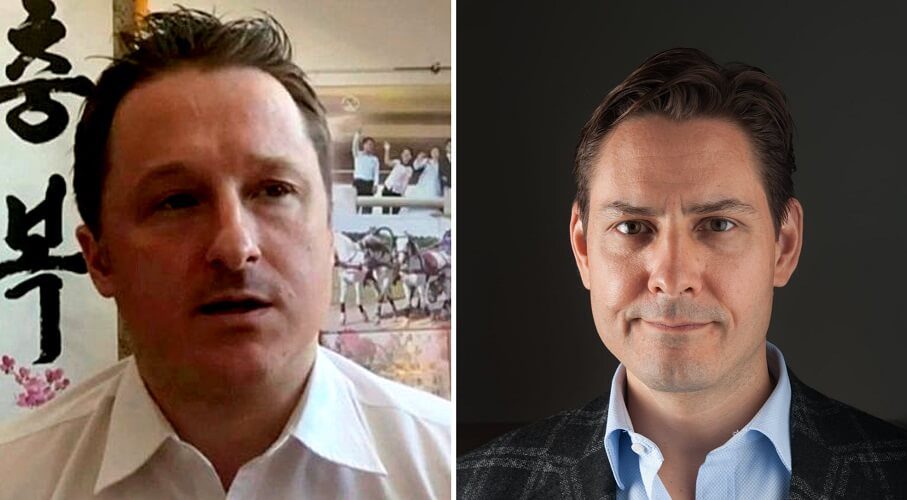 Engaging in a “prisoner swap” over Meng Wanzhou would damage Canada’s judicial independence and encourage future hostage-taking, writes Alex Lee.
Engaging in a “prisoner swap” over Meng Wanzhou would damage Canada’s judicial independence and encourage future hostage-taking, writes Alex Lee.
By Alex Lee, June 25, 2020
On June 22nd, the Globe reported that Ottawa has the authority to release Huawei CFO Meng Wanzhou from her extradition trial, and that doing so would be in Canada’s interest – by facilitating China’s release of imprisoned Canadians Michael Kovrig and Michael Spavor. Eddie Goldenberg, former chief of staff for Prime Minister Jean Chrétien, penned similar thoughts in a January op-ed.
That Ottawa has the authority to release Meng was never in doubt. But exercising authority would be disastrous for Canada’s legal system, ravage our courts’ judicial independence, and encourage future hostage-taking by the Chinese Communist Party.
The circumstances of the arrest (and now, formal charging) of Michael Kovrig and Michael Spavor leave little doubt that they were taken hostage in retaliation for Meng’s arrest. But it is often falsely claimed that Meng’s arrest was a consequence of President Trump’s sanctions on Iran.
In actuality, Meng and Huawei face 23 criminal charges including bank fraud, wire fraud, money laundering, and obstruction of justice. These charges are the result of an investigation that dates back to the Obama administration. In a recent interview on CBC’s The National, Susan Rice, National Security Advisor under President Obama, even defended Meng’s arrest and highlighted the risks that Huawei poses to Canada’s 5G network architecture.
Meng is alleged to have concealed Huawei’s violations of Obama-era sanctions, and to have deceived American banks into violating these laws by facilitating over $100 million of transactions for Skycom, a Huawei subsidiary, through the US. These are serious allegations that deserve to be heard in court, and as Associate Chief Justice Heather Holmes ruled in May, these alleged crimes would also constitute crimes if they were done in Canada.
With this in mind, the facts of the case are clear: assuming Justice Holmes finds no issue with the manner in which Meng was arrested in Canada, there is no legal reason to interfere with Meng’s extradition to the US to stand trial for the serious crimes that she is alleged to have committed.
It is true that Canada’s Justice Minister has the authority to intervene and stop the extradition. But such an action would be little more than naked appeasement to the Chinese Communist Party and would come at great cost.
By jeopardizing Canada’s judicial independence and capitulating to Beijing’s hostage-diplomacy, the government would be making a horrendous mistake with repercussions for all of Canadian society.
The logical consequence of releasing Meng is that Beijing will know that individuals who are well connected to the Chinese Communist Party can act with some level of impunity – our laws and extradition treaties be damned. If we step out against Beijing’s authoritarian interests, Communist Party authorities will simply kidnap some more Canadians, with the expectation that we will simply capitulate, as with Meng. The implications for Canadian sovereignty and rule of law are dire. This would only validate the Chinese Communist Party’s hostage-taking, thus making “hostage diplomacy” (alongside economic coercion and other pressure operations) a tried-and-tested approach for achieving Chinese political objectives.
In democracies like Canada with sound legal systems, politicians must not interfere with legal proceedings. Prime Minister Trudeau is alleged to have interfered with a judicial process with SNC-Lavalin – an event which may well have costed him his parliamentary majority. Hopefully, he has learned his lesson and will not abandon the principle of the rule of law simply because Beijing wants him to.
To their credit, Prime Minister Trudeau and Justice Minister David Lametti have, so far, held their ground. That said, it is worrying that the government has yet to clearly articulate that Canada will not give Meng a free pass.
Canada and our allies must be united in declaring that hostage-taking is unacceptable. The Trudeau government has done an admirable job in garnering international support for the release of Kovrig and Spavor. But we need to go further – by invoking Magnitsky sanctions and issuing a travel warning for Canadians going to China, due to the threat of arbitrary kidnappings. Chinese authorities are extremely sensitive to their global image, and there is reason to believe that a concerted, united, and more vocal effort to release the Kovrig and Spavor could hit home in China.
Ultimately, Canada must not capitulate to the Chinese Communist Party’s long-standing practice of hostage diplomacy. All Canadians are of course deeply concerned for the health and welfare of Michael Kovrig and Michael Spavor, but an ill-conceived prisoner-for-hostage swap is not the answer.
Alex Ra-Lee is the Director of Strategy and Policy for Alliance Canada Hong Kong, a Canadian advocacy group.




